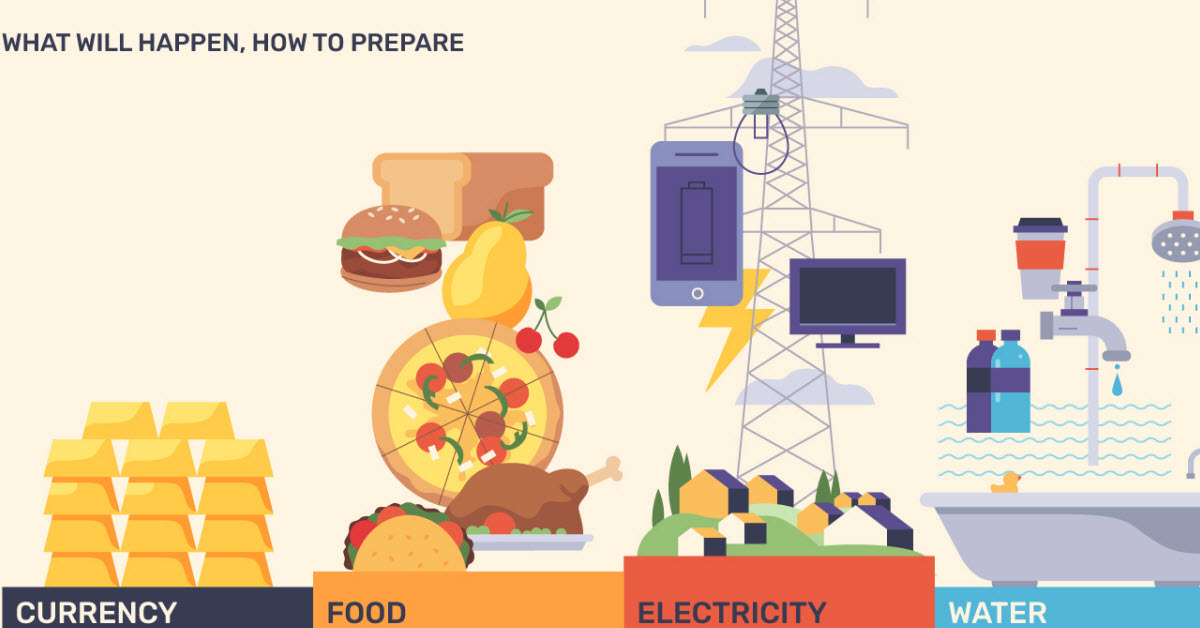A disaster scenario may take on many different forms. In some cases, it is a natural disaster or perhaps an act of terrorism that causes issues. We often prepare for these types of disasters with food and water storage and plenty of first-aid supplies to get us through until the issue passes. There is another potential problem that needs to be considered, however, and that’s the possibility for economic collapse.
Most people tend to live without any real thought of the possibility of serious economic problems. The fact of the matter is, however, it has happened before in the not too distant past, it came very close to happening again. On September 17, 2008, the US economy almost completely melted down and most people are unaware of exactly how serious of the situation it was.

If and when an economic collapse takes place, the situation is going to get serious very quickly. Delivery trucks are no longer going to bring supplies to outlying areas and grocery stores are going to run out of food quickly. It won’t be long before businesses begin to shut down and the money markets are gutted as people begin pulling their money out in an attempt to secure it.
The biggest problem associated with economic collapse is not the lack of food or financial woes, it’s the fact that it happens so quickly and without any warning. Many people will be in sore straights during that time because banks are going to close, credit is going to be unavailable and any available food is going to be inaccessible to those who use plastic and nothing else.
Preparing for an economic collapse is one of the best things that you can do to keep your family safe. Fortunately, many of the ways that you can prepare for such a catastrophe are similar to preparing for other issues. This will include having a survival pantry with plenty of food and water along with necessary medical supplies.

It is also important to keep your assets liquid if at all possible. This may require keeping a significant amount of cash on hand rather than relying on credit. Don’t keep it all in large bills. Keep smaller bills on hand because when you have to buy a bottle of water on the street for your family, they don’t care if you have a $20 bill or a five dollar bill, they will take either.
Keep yourself healthy during good times so that you will be more likely to survive during difficult times. It is also a good idea to hone your survival skills including hunting, fishing and farming. Take the time to get out there now and practice while you still have the opportunity to do so without relying on it for your day-to-day needs. This will allow you and your family to live off of the land in the event that the resources we use now are no longer available.
